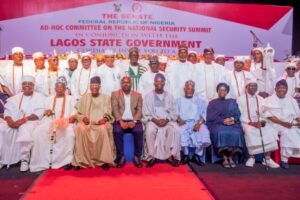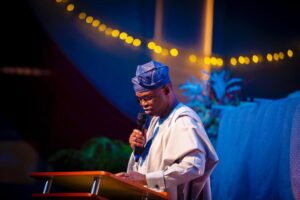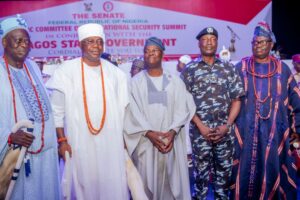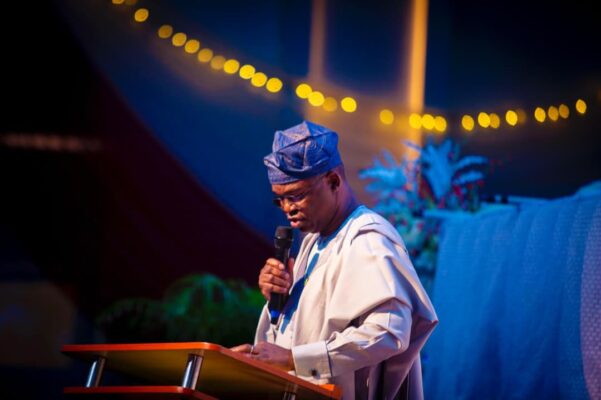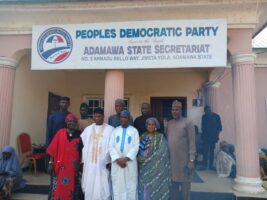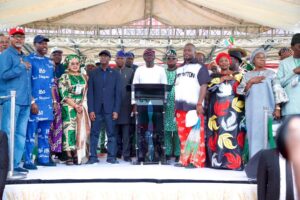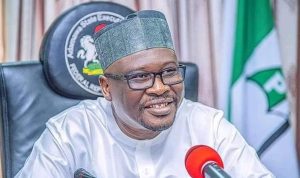The Senate on Friday convened the South-West Zonal Security Summit in Lagos, bringing together key stakeholders from government, security agencies, civil society, and traditional institutions to chart a new course for tackling the region’s growing security threats.
The meeting renewed calls for indigenous security strategies, technology-driven operations, and the establishment of state police to curb banditry, kidnapping, and violent crimes.
Senator Mukhail Abiru, who represents Lagos East and chairs the South-West interactive hearings of the Senate’s National Security Summit Committee, stressed the urgency of collective action. He warned that the South-West must not wait for insecurity to escalate before taking decisive steps.
“Though the region has not suffered terrorism at the scale seen elsewhere, the rise in banditry, kidnapping, and violent attacks is deeply troubling,” Abiru said. He listed farmer-herder clashes, threats to farmlands, and the spread of armed groups as signs demanding immediate attention. “We must not allow the South-West to become a sanctuary for criminality. Every resource—human, material, and technological—must be deployed to defend our communities.”
He also urged citizens to remain vigilant and the media to promote unity-building narratives rather than divisive commentary that could worsen national tension.
Lagos State Governor Babajide Sanwo-Olu, represented by the CEO of the Lagos State Security Trust Fund, Dr. Ayodele Ogunsan, reiterated the state’s commitment to strengthening its security architecture. He advocated a unified regional security network, including a more cohesive, well-equipped Amotekun capable of intelligence sharing and conducting joint operations across state lines.
“Security is not just about peace; it is about economic survival,” he said, adding that insecurity disrupts markets, transportation, and investments, ultimately weakening regional growth.
Senator Jimoh Ibrahim of Ondo South, sponsor of the bill establishing the National Security Summit, said terrorism and insurgency demand unconventional approaches that combine military and civilian efforts. Senator Gbenga Daniel of Ogun East echoed this, urging stronger collaboration among all stakeholders.
Read Also
- Police Arrest 20-Year-Old Over Possession of Suspected Human Part in Oyo
- Police Officers Arrested Over ‘Accidental Shooting’ That Killed Two in Lagos
- Police Identify Corpse of 30 Years Old Man Beheaded by Suspected Cultists
- Police Arrest Suspected Armed Robbers, Drug Dealers, Cattle Rustlers in Jigawa
The Lagos State Commissioner of Police, Moshood Jimoh, emphasized that most security challenges are local in nature and must be addressed with locally tailored solutions.
Traditional institutions also made strong inputs. The Alara of Ilara, Oba Olufolarin Ogunsanwo, called for community policing, increased recruitment, better equipment, and more youth employment opportunities to prevent restiveness. He noted that while the federal government had improved international cooperation, weak grassroots structures continued to undermine progress.
The Aare Onakankanfo of Yorubaland, Iba Gani Adams, maintained that state police remained a critical component of any long-term solution to insecurity.
Civil society groups, youth leaders, women’s associations, and religious leaders used the summit to advocate improved welfare for security personnel, arguing that better motivation will enhance professionalism and accountability.
The summit concluded with a unified message: securing the South-West requires homegrown strategies, modern tools, stronger community involvement, and urgent structural reforms to prevent insecurity from taking deeper root in the region.
